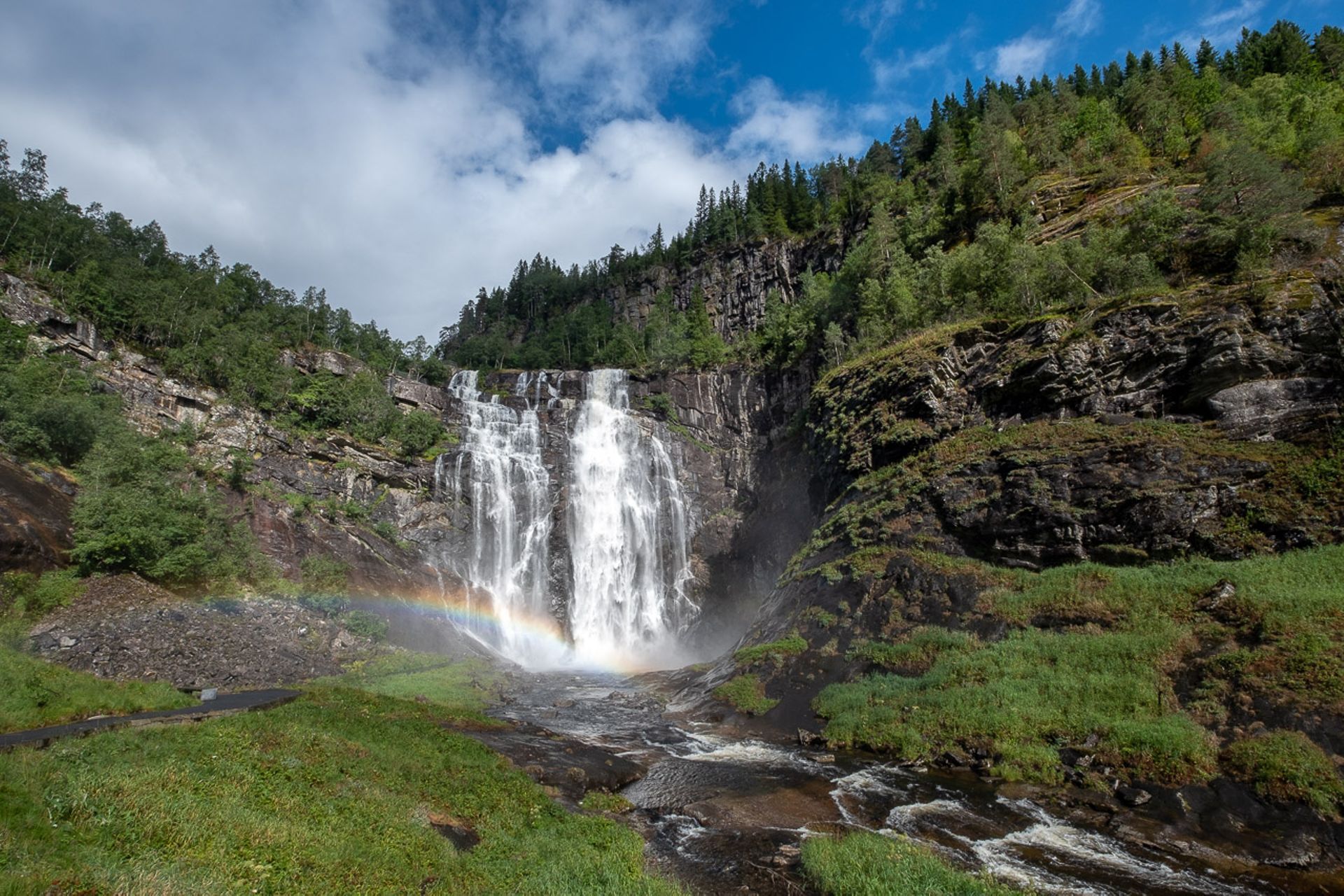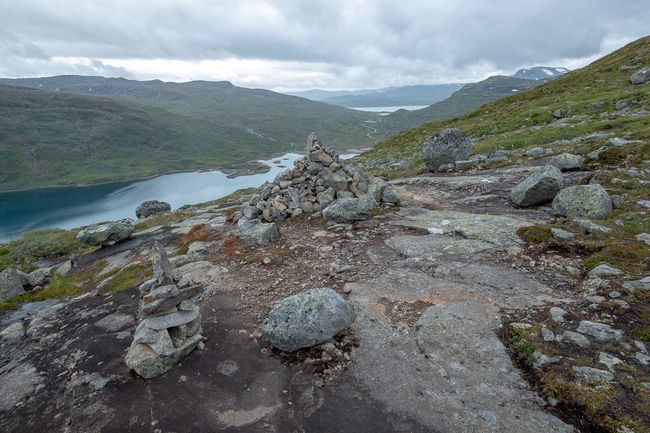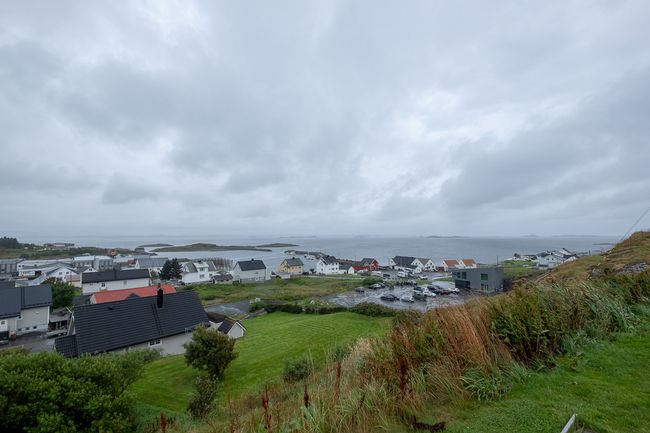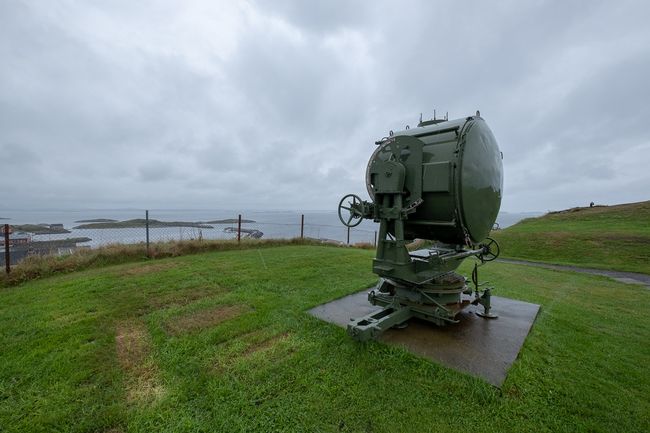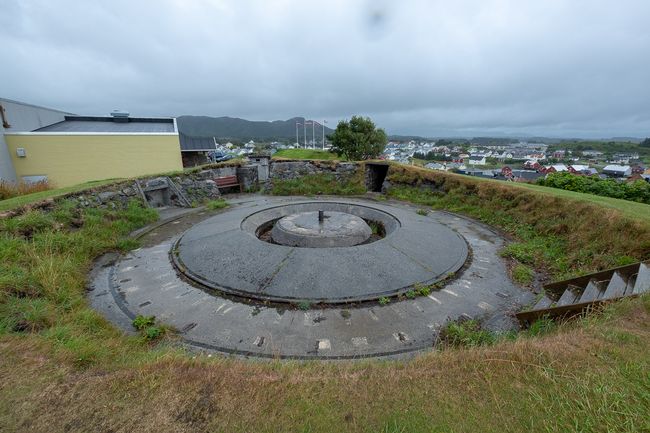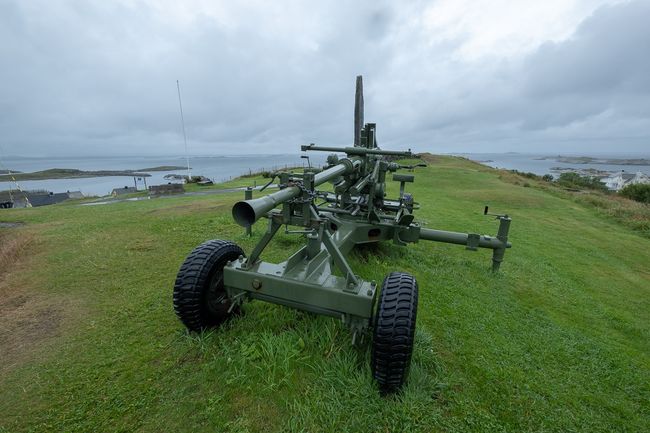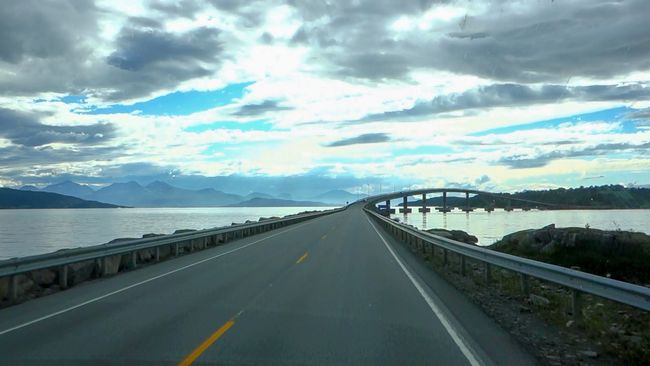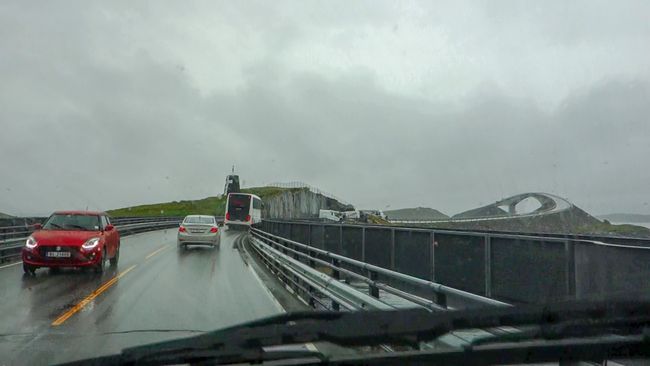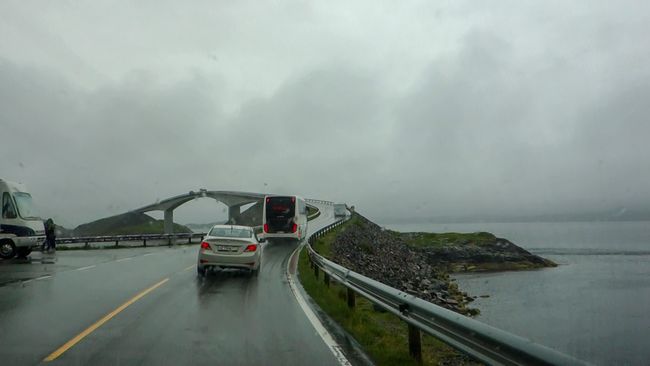Day 14 - To Kristiansund
Ebifulumiziddwa: 12.08.2018
Wewandiise ku lupapula lw'amawulire
It's raining again, and it was so beautiful last night. And it happens to be the day when we want to drive the remaining distance to Kristiansund via the so-called Atlantic Road. As the name suggests, this road runs along the ocean for its entire length and offers (in good weather) a wonderful view of the small islands and skerries off the coast. Thanks to the gloomy weather and constant rain, the visibility is poor, and the view during the drive is therefore not half as picturesque as it could be.
The Atlantic Road starts in the fishing town of Bud. Here there is a coastal fortress built by the Germans during World War II, with an attached museum, which we also visit, considering the weather. The museum is more focused on the history of the place Bud and its surrounding area, especially the sea in this coastal stretch, which has dangerous shallows and has claimed several ships. During the exploration of the "Orme Lange" gas and condensate field located in front of Kristiansund, the Norwegian legislation aimed at preserving culture and nature required the seabed to be searched using remotely operated submersibles in order to recover historically interesting goods from the numerous wrecks. This brought to light things like Chinese porcelain, millstones from Norway, stoneware from Germany, and many other items, a selection of which can be viewed at the museum. These are displayed in dark showcases and can be illuminated with a kind of flashlight, after which interesting information about the corresponding object and its history is provided on a touchscreen. For example, you learn that millstones of high quality back then mainly came from Norway, due to the high hardness of the rock, which is necessary for low abrasion during the grinding process. Or that at that time, the Dutch needed large quantities of Norwegian wood for their trade and war fleet, while Norway had to import bricks from there due to the lack of industry.
Wewandiise ku lupapula lw'amawulire
Okuddamu
